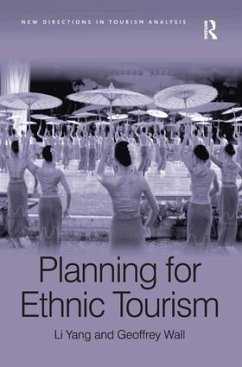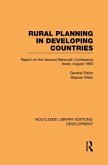Ethnic tourism has emerged as a means that is employed by many countries to facilitate economic and cultural development and to assist in the preservation of ethnic heritage. However, while ethnic tourism has the potential to bring economic and social benefits it can also significantly impact traditional cultures, ways of life and the sense of identity of ethnic groups. There is growing concern in many places about how to balance the use of ethnicity as a tourist attraction with the protection of minority cultures and the promotion of ethnic pride. Despite the fact that a substantial literature is devoted to the impacts of ethnic tourism, little research has been done on how to plan ethnic tourism attractions or to manage community impacts of tourism. This book addresses the need for more research on planning for ethnic tourism by exploring the status and enhancement of planning strategies for ethnic tourism development. The book develops the case of a well-known ethnic tourist destination in China -Xishuangbanna, Yunnan. It analyzes how ethnic tourism has been planned and developed at the study site and examines associated socio-cultural and planning issues. The authors evaluate the perspectives of four key stakeholder groups (the government, tourism entrepreneurs, ethnic minorities and tourists) on ethnic tourism through on-site observation, interviews with government officials, planners and tourism entrepreneurs, surveys of tourists and ethnic minority people, and evaluation of government policies, plans and statistics. This book is unique in its emphasis on planning and in its focus on China, rapidly emerging as a major player in tourism, with applications for tourism around the world.
Hinweis: Dieser Artikel kann nur an eine deutsche Lieferadresse ausgeliefert werden.
Hinweis: Dieser Artikel kann nur an eine deutsche Lieferadresse ausgeliefert werden.








